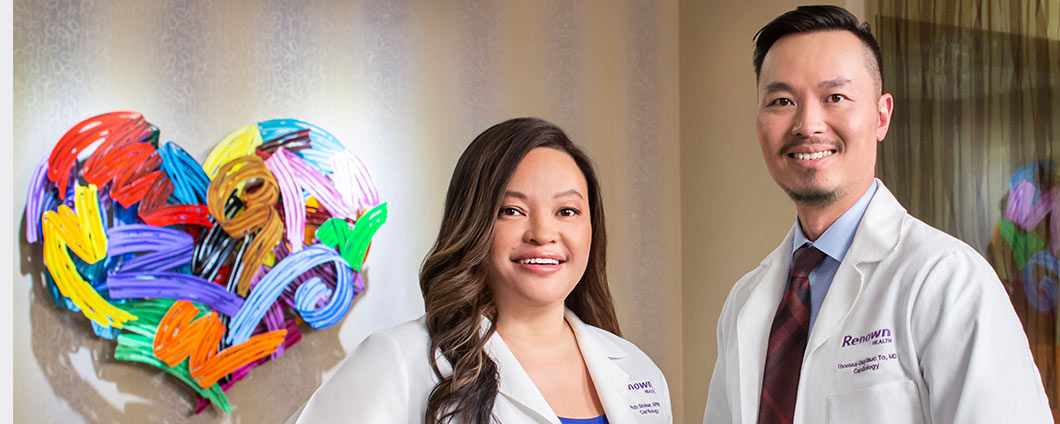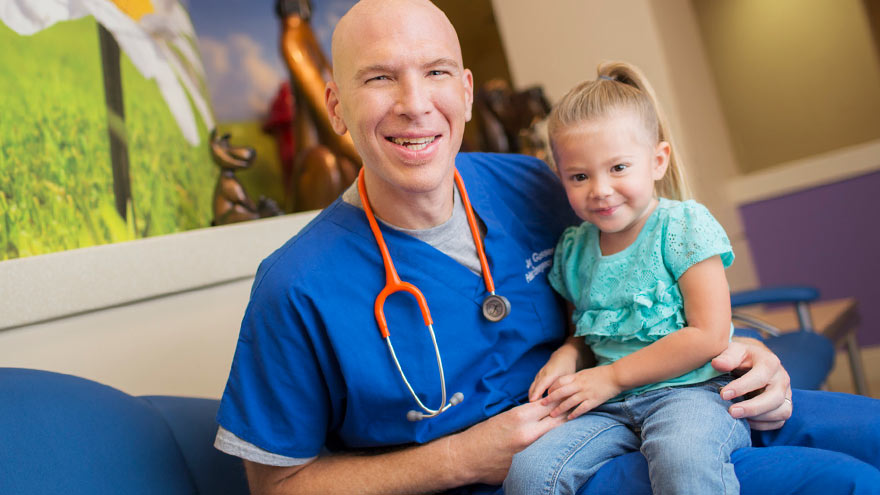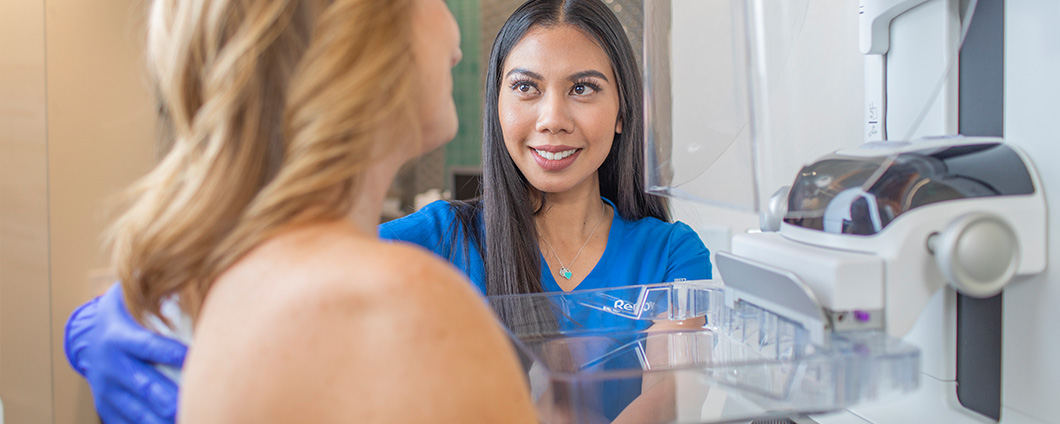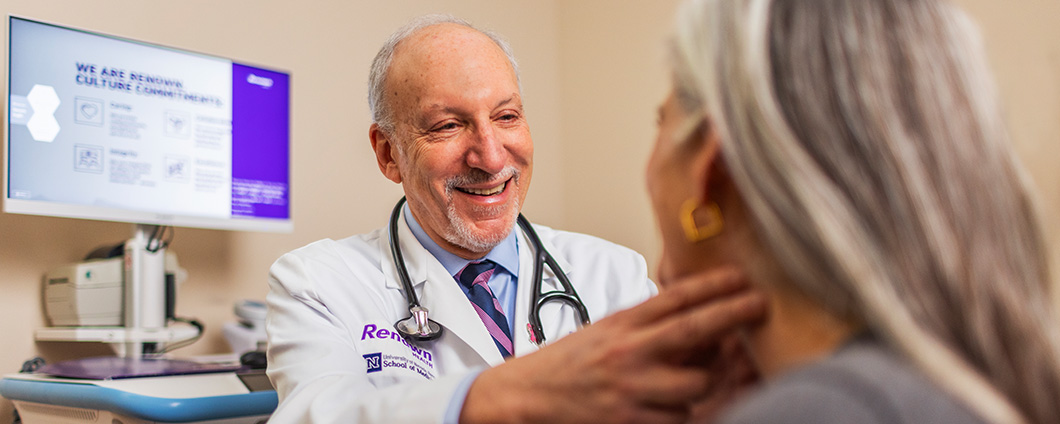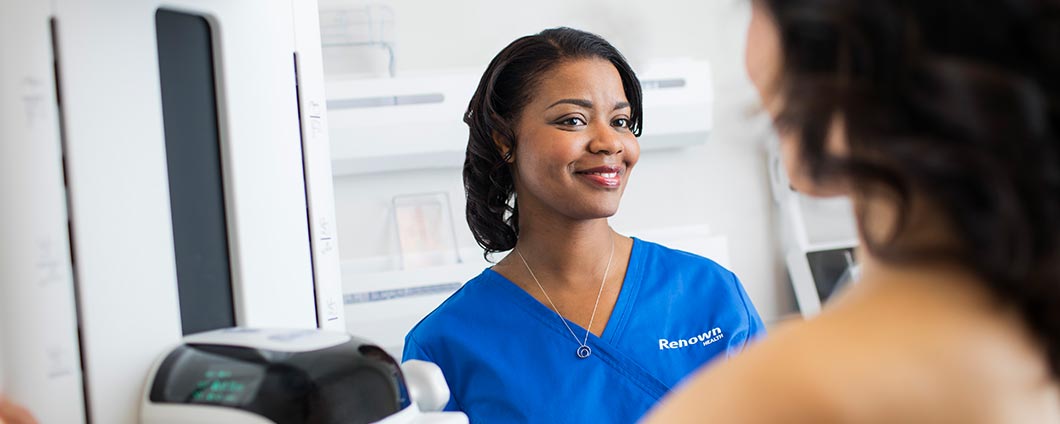Search
Results for 'imaging'
Clear-
Parkinson's Disease Know The Important Symptoms
Parkinson’s disease – you may have heard of it because Neil Diamond and Ozzy Osbourne were recently diagnosed with it. Or perhaps you know Michael J. Fox is a strong advocate and funds research through his foundation. Neurologist Jonathan Spivack, MD, discusses this disease, while physiatrist Stephanie Jones, DO, explains how physical therapy can help as a supplemental treatment. According to the Parkinson’s Foundation about ten million people worldwide currently have this disease. What is Parkinson’s Disease? “Parkinson’s disease is a neurodegenerative disease that progresses slowly and definitely, though at variable rates,” explains Dr. Spivack. “Symptoms go beyond the classic motor changes. It results from a loss of specific dopamine-producing brain cells. Specifically, this loss is likely due to a mix of genetic and environmental factors,” he adds. Dopamine allows communication between particular nerve cells responsible for movement. If you have Parkinson’s dopamine levels gradually drop, causing a loss of motor skills. Generally, most patients with the disease are over age 65. Early Signs and Symptoms Diagnosing Parkinson’s can be difficult as some of the symptoms happen during the natural aging process. The Parkinson’s Foundation identifies the following 10 early signs of PD: Tremors or shaking of your hand, fingers or chin Small handwriting Loss of smell Sudden movements during sleep Stiffness when walking or moving Constipation Softer or lower voice volume Mad facial expression Feeling dizzy or faint Hunching or stooping posture A single sign may not point to the disease, but if you (or a loved one) has multiple signs, talk to your healthcare provider.
Read More About Parkinson's Disease Know The Important Symptoms
-
Keeping Your Brain Healthy, No Matter Your Age
It’s true there is no cure for dementia, yet studies suggest your life choices today can reduce brain decline in the future. How important is diet to brain health? Food is the foundation of your body. Fats, carbs and protein provide the energy for your cells and metabolism. So the quality and amount of food you eat directly affects your brain. Specifically, researchers are paying special attention to the link a high sugar diet and/ or an unhealthy fat diet may have on your brain. Your brain on sugar According to the Alzheimer’s Association, when too much sugar is in the bloodstream for long periods of time, it can damage the brain cells. Many people with diabetes may develop brain abnormalities, and these changes may increase chances of dementia — research is still being done to understand this connection. Many U.S. adults have prediabetes with blood sugar higher than normal. Insulin resistance often leads to diabetes. Insulin resistance has been linked to metabolic syndrome, which is a precursor for cardiovascular and cerebrovascular disease (heart attack, stroke). Some signs of metabolic syndrome include: Large waist size (40 inches or more for men, 35 inches and up for women) Low HDL (good) cholesterol level Higher than normal blood pressure — 130/85 and above Current research suggests too much sugar in the blood causes inflammation, which can damage brain cells. High carbohydrate foods, such as sweetened beverages, chips, white rice, white potatoes, bagels, cereals and desserts, have been shown to raise blood sugar. Although anyone can get diabetes, Hispanic Americans and African Americans are at greater risk.
Read More About Keeping Your Brain Healthy, No Matter Your Age
-
8 Important Health Screenings for Men
Men are generally less likely to visit their doctor for exams, screenings, and consults compared to women. To address this, we've collaborated with Dr. Bonnie Ferrara of Renown Health, to compile a list of eight essential screenings that can help men maintain their health. 1. Blood Pressure Tests Ages 20+ Blood Pressure tests measure the pressure in your arteries as your heart pumps. Biennial (every two years) checks are recommended if you have normal blood pressure or more frequently if you have high blood pressure (hypertension) or low blood pressure (hypotension). The United States Preventative Services Taskforce cites normal blood pressure below 120 systolic (top number) and 80 diastolic (bottom number). 2. Cholesterol Screening Ages 20+ High levels of cholesterol increase your risk of stroke and heart disease. A simple blood test will help your healthcare provider determine your numbers and if you're at risk. If you have a family history of diabetes or heart disease, you may need yearly screenings. But, again, your doctor can provide the best course of action.
-
Heart Failure Program
At Renown Health, our nationally recognized Heart Failure Program provides best-in-class diagnoses, treatment and management of heart failure. Patients receive specialized care from our dedicated team of experts which includes nurse navigators, clinical coordinators and highly trained cardiologists. We are proud to serve our community and lead the region in heart failure care.
-
How Philanthropy Helps Address Gaps in Care
In Nevada, we are so fortunate to have a number of not-for-profits and philanthropists who are supporting our mission at Renown Health; we couldn’t do it without them. In the world of healthcare, we are doing well in driving community benefit programming through operations. However, the things our communities need investments in are so much broader than we might be able to afford on our own. That is why it is essential for us to be supported by the people who are so in love with this community and want to assure we get the kinds of services and care for those who can’t afford it or add new services that are contemporary and leading edge that have not been offered here before. Establishing Behavioral Health & Addiction Institute We are so excited to receive a very generous donation from Chuck and Stacie Mathewson for the Stacie Mathewson Behavioral Health & Addiction Institute. This institute is so sorely needed in northern Nevada. Renown Health has a very important role in being able to bring attention to this important problem of mental health and addiction challenges in northern Nevada. Keeping Pediatric Care Close to Home One of the most important areas where philanthropy comes in handy for us at Renown Health is by assuring that we have the foundational programs that we would not be able to afford with operations alone. For example, the William N. Pennington Foundation’s generous gift has allowed us to create 15 pediatric specialty areas here in northern Nevada so children who have an illness or injury no longer need to leave town. The William N. Pennington Foundation supported Renown Children’s Hospital in a way that we never would have been able to support on our own. We are eternally grateful, and their gift — that 100,000 children are assured access to contemporary health and healthcare services — is beyond comprehension.
-
Keeping Pediatric Care Close to Home
As our community grows, so does the need for specialized care. Thanks to a generous gift, there’s a healthier future for families in the region as a $7.5 million gift to the Renown Health Foundation is helping keep care close to home. Being in the hospital is often a stressful experience, especially for a child and their caregivers. If you add the need to travel out-of-state for care into the mix, unnecessary anxiety and financial burdens can be placed on a family that is already worried about a sick child. With our quickly growing community and close to 100,000 children under the age of 18 in Washoe County alone, the need for local specialty care is needed. The William N. Pennington Foundation recognized this need and donated $7.5 million to the Renown Health Foundation – the largest gift the health system has received – to keep care close to home and establish the William N. Pennington Fund for Advanced Pediatric Care. Thanks to this gift, Renown Children’s Hospital has hired more than 15 pediatric specialists who provide care for children in our community. Below, we introduce you to three key specialized pediatricians in northern Nevada: Joseph A. Gassen, M.D. “Having pediatric specialists in the community is invaluable,” says Joseph A. Gassen, M.D., pediatric emergency medicine. “It allows families and patients to stay in Reno and not have to travel far distances to get quality care.” Gassen, the only doctor specializing in pediatric emergency medicine in the region, moved to Reno to provide care in the emergency room at Renown Children’s Hospital. “The hospital is dedicated to improving the care of children in northern Nevada, and I wanted to be a part of this amazing vision," Dr. Gassen says. I would not have been able to relocate to Reno without the support from the hospital and the William N. Pennington gift.” Working with children and their families are what Dr. Gassen finds most rewarding. "I get to provide care for a child, which in turn makes the parent feel better,” he says. “Essentially, I get to treat the whole family, even though I only directly care for the kids.” Colin Nguyen, M.D. Also among the first new specialists is Pediatric Neurologist Colin Nguyen, M.D., who has done extensive work with epilepsy and epilepsy surgery. “In any growing and expanding community, we need the multitude of social, financial, political and well-being services to sustain that growth and progress,” Dr. Nguyen says. “The ability to offer more breadth of medical services to our local population allows families to spend more time together and fulfill work obligations, without the need to travel long distances to obtain that specialized care.” Dr. Nguyen says he enjoys caring for children because they are honest in their emotions and reactions, as well as simple in their intentions. “It is the overall joy and unique sadness that comes in working with children, which drives many of us to continue our work -- I am no exception.” Jacob Zucker, M.D. The third pediatric specialist providing care thanks to the Pennington gift has close ties to northern Nevada. Jacob Zucker, M.D., pediatric hematologist-oncologist, was born and raised in Reno and attended medical school at the University of Nevada, Reno School of Medicine before moving to the Midwest for his residency and fellowship. Dr. Zucker feels fortunate to have been offered the opportunity to return home and give back to the community that has given so much to him. “I can say with absolute resolve that northern Nevada is an exceptional community to practice medicine in. The care offered here at home is top rate and the providers that live and practice here truly understand the purpose of community.” The addition of these three specialists and the future specialists that will be coming to our area will impact thousands of children and their families. “With a growing population, the vision of leadership at Renown, and with the generosity of the William N. Pennington Foundation, northern Nevada is in position for the first time to make local pediatric subspecialty care a reality and to keep our families at home in their community,” Dr. Zucker says.
-
What Is an Echo-Tech?
When it comes to our heart, keeping this vital source of life in tip-top shape is of utmost importance. Echo technologists or echocardiographers, otherwise known as "echo-techs," are charged with that mission, providing critical information that leads to life-saving interventions to keep our hearts beating strong. Adrianne Little, echocardiographer at Renown Health, breaks down the echo-tech's role in the health system, the educational path it takes to get there and the unique perks that come with the profession. What does an echo tech do? “Echo techs play a key role in the diagnosis and treatment of patients,” said Adrianne. “We are members of the cardiovascular imaging team that perform ‘heart ultrasounds’ or echocardiograms. Although we are most commonly known as echo techs, our official title is either ‘cardiac sonographer’ or ‘echocardiographer.’” Echo techs use imaging technology and sophisticated ultrasound equipment to produce images of the heart. These images show how well the heart functions, as well as the valves, chambers and blood flow. Echocardiograms are used to diagnosis and treat a variety of heart conditions such as murmurs, arrhythmias and heart failure. At the end of the day, the main goal of echo techs is to help our cardiovascular team provide the quickest and most accurate diagnoses to help with patient management and help them receive the highest standard of care. “When it comes to looking at the heart, we are part of the front-line team," said Adrianne. “We provide real time critical information that leads to life saving interventions down the road.”
-
General Cardiology
At Renown Health, we're dedicated to providing exceptional care to patients with a wide range of cardiac conditions. Our General Cardiology Program specializes in assessing heart diseases, identifying existing conditions and developing personalized treatment plans for each patient.
-
Which Type of Breast Health Screening is Right for You?
Reviewed by Dr. Colleen O'Kelly-Priddy, MD, FACS, breast surgical oncologist at Renown Women's Health. In the United States, breast cancer is the most common cancer among women, with approximately 1 in 8 women developing breast cancer during their lives, reports the American Cancer Society. These statistics can be a little startling; however, when it comes to taking charge of your health, early detection is key. The National Breast Cancer Foundation, Inc. reports that when breast cancer is caught in its earliest, localized stages, the 5-year relative survival rate is 99%. The earlier breast cancer is found, the more treatment options are available and better survival rates are seen. New technology and evolving screening guidelines are crucial for women to understand and choose the right screening method for their specific needs. The most common types of screenings available today are: 2-D Mammography 3-D Mammography Whole Breast Ultrasound What is the Difference Between 2-D Mammography and 3-D Mammography? 2-D Mammography: In a standard 2-D mammogram, the tech takes X-rays of the breast, compressing it top-to-bottom and side-to-side, providing a 2-dimensional view in each direction. These pictures can show the radiologist if there are abnormalities you might not be able to feel. 3-D Mammography: In 3-D mammography, or “tomosynthesis,” the process is largely the same, but more images are taken, and it takes a few seconds longer. This kind of exam provides a more detailed view because it reduces the overlap of tissues that can take place in a standard 2-D mammogram. Using 3-D mammography, radiologists can detect 41 percent more cancers and reduce the number of callbacks for additional imaging. This improvement in technology is great for both patients and their care providers. Renown uses 3-D mammography because it produces better images of the breast, enabling doctors to more accurately diagnose and reduce false positives, especially in women with dense breast tissue.
Read More About Which Type of Breast Health Screening is Right for You?
-
Breast Cancer Screening
Renown Women's Health recommends the following breast exam guidelines: Age 18-39: Consult your primary care provider for a Formal Risk Assessment and start breast exams at age 25. Age 40+: Annual mammograms. Family History: Begin screening 10 years before your family member's diagnosis age. For example, start at age 35 if a family member was diagnosed at 45. Self-awareness: Be familiar with the look and feel of your breasts and report any changes to your care provider. Age 75+: Annual mammograms if life expectancy exceeds five to seven years.
-
Medical Oncology
Renown's William N. Pennington Cancer Institute offers comprehensive medical oncology services designed to provide compassionate care and personalized treatment for individuals battling cancer. We understand that a cancer diagnosis can be a challenging and life-changing experience. That's why our team of board-certified medical oncologists, nurses, and support staff provide you with the highest level of care and support throughout your cancer journey. Our approach to medical oncology is patient-centered and multidisciplinary. We believe in treating the whole person, not just the disease, and work closely with other specialists, including surgeons, radiation oncologists, and supportive care providers, to develop comprehensive treatment plans tailored to each individual's unique needs and goals. Services Offered Diagnosis and Treatment: Comprehensive Evaluation: Our team conducts thorough evaluations, including diagnostic imaging and laboratory tests, to accurately diagnose your condition and determine the most appropriate treatment plan. Chemotherapy: We offer a wide range of chemotherapy options, including traditional intravenous infusions, oral medications, and targeted therapies, tailored to target your specific type of cancer. Immunotherapy: Immunotherapy harnesses the power of the immune system to fight cancer and has shown promising results in treating various types of cancer. Our oncologists are experienced in administering and monitoring immunotherapy treatments. Clinical Trials: As a leading cancer research institute, we offer access to cutting-edge clinical trials exploring new treatment approaches and investigational therapies.
-
Cancer Screening & Prevention
Early detection plays a crucial role in effectively managing cancer. By undergoing regular cancer screening tests, you can identify the presence of cancerous cells or tumors even before symptoms manifest. It provides an opportunity for timely intervention and increases the chances of successful treatment and recovery. At the William N. Pennington Cancer Institute, your care team is essential in determining which screenings are most appropriate for you and your family based on your medical history, age, and risk factors. They can guide you through the various screening options available and address any concerns or questions you may have. Cancer screening tests encompass a range of examinations, including imaging techniques such as X-rays, CT scans, MRI scans, as well as specific tests like mammograms, Pap smears, colonoscopies, and prostate-specific antigen (PSA) tests. These screenings aim to detect breast, lung, prostate, colorectal, cervical, and other types of cancers. By prioritizing cancer screenings and preventive measures, you take an active role in safeguarding your health. Detecting cancer early significantly increases the chances of successful treatment and improves overall outcomes. Prevention Cancer prevention is a vital aspect of maintaining overall health and well-being. One significant preventive measure is the administration of HPV (human papillomavirus) vaccines. HPV is a common sexually transmitted infection that can lead to several types of cancers, including cervical, vaginal, vulvar, anal, penile, and oropharyngeal cancers. HPV vaccines are designed to protect against high-risk HPV strains responsible for the majority of these infections. By getting vaccinated, individuals can significantly reduce their risk of developing HPV-related cancers. These vaccines are most effective when administered before exposure to the virus through sexual activity. Therefore, early vaccination, ideally during adolescence or early adulthood, is crucial for long-term protection. By prioritizing HPV vaccination as part of comprehensive cancer prevention strategies, individuals can take proactive steps towards reducing the risk of these preventable cancers.



